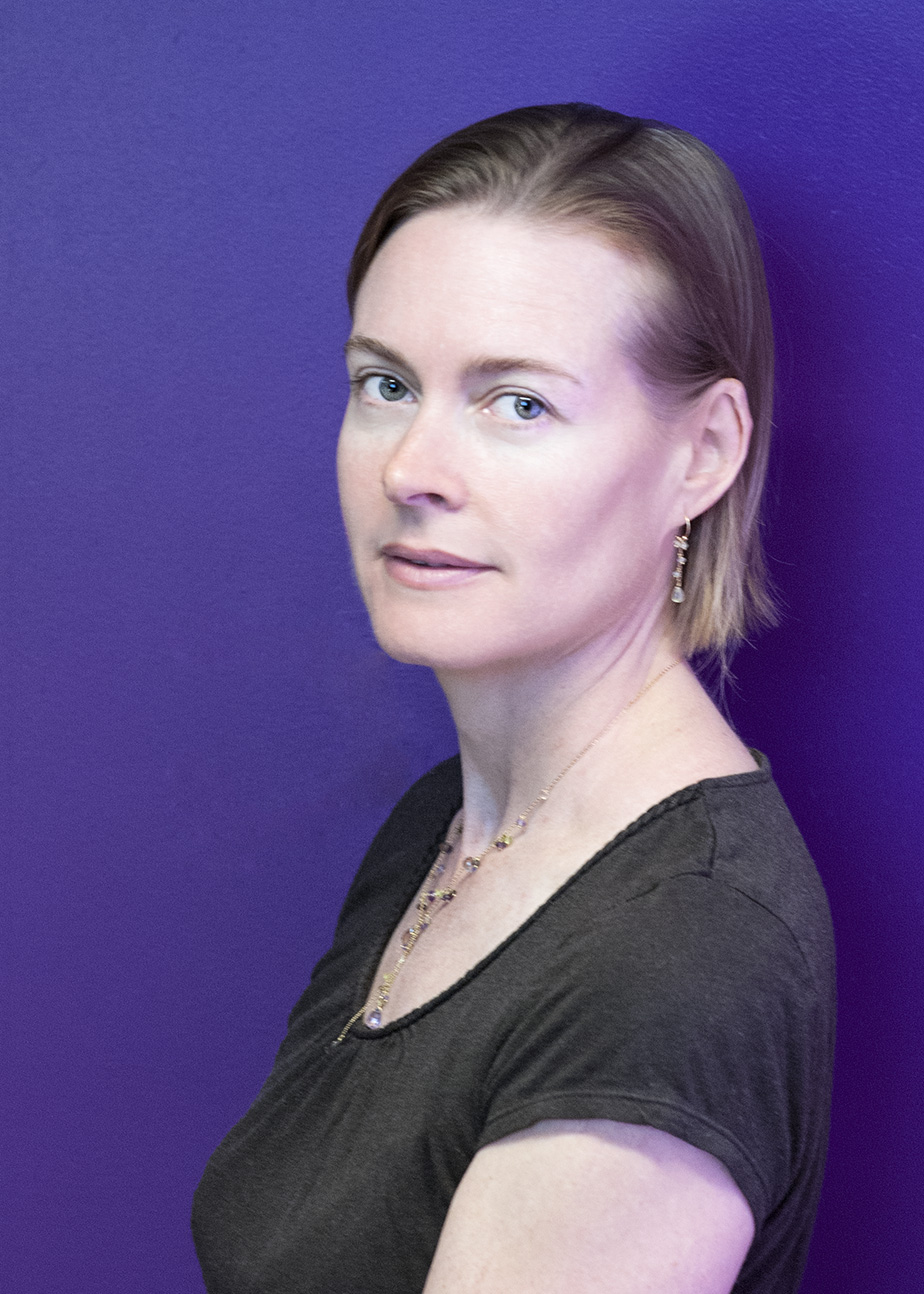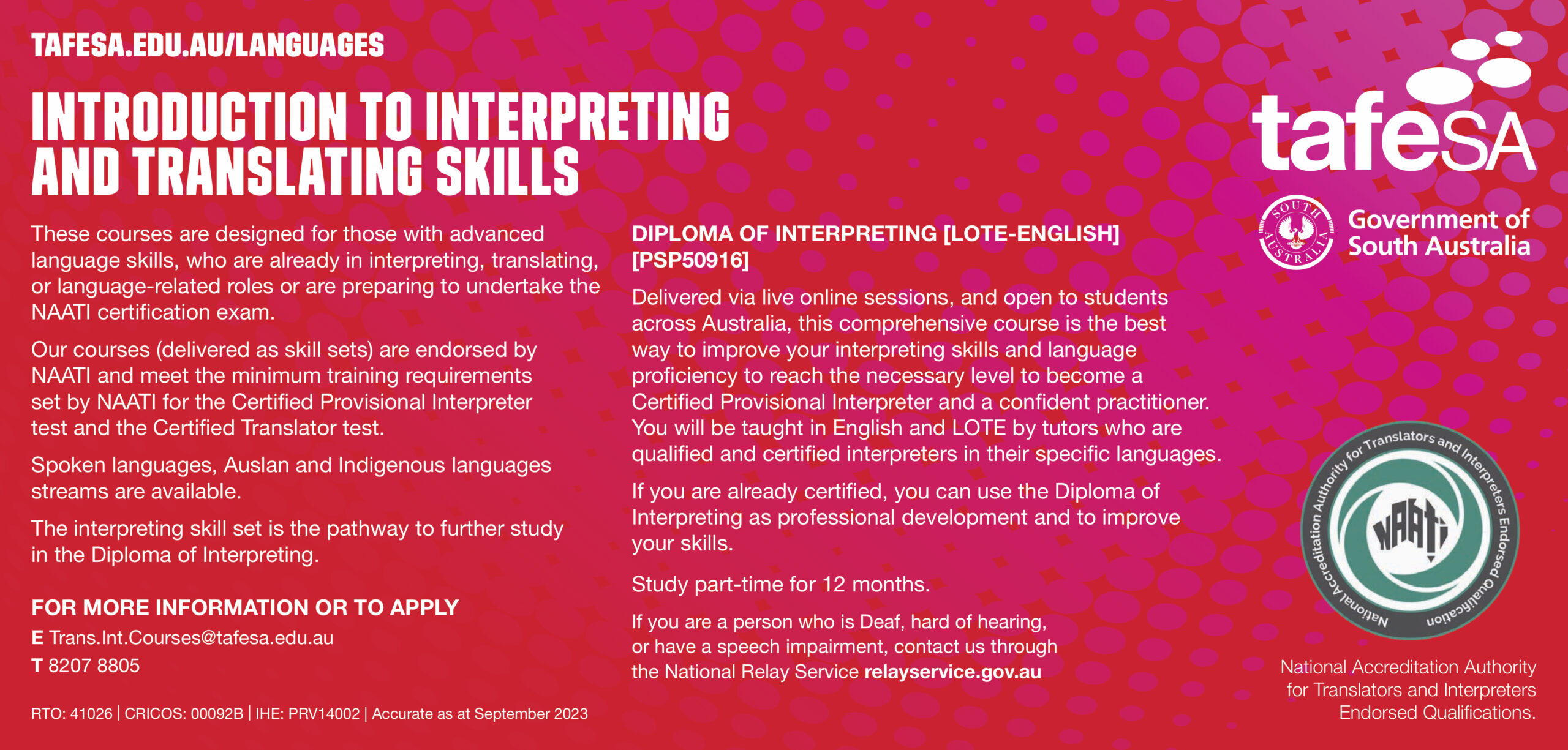SPECIAL FEATURE: LITERARY TRANSLATION, PART 4
During this year’s London Book Fair (18–20 April), Publishers Weekly published some advice for aspiring literary translators from experienced practitioner Samantha Schnee. In Touch has added notes to adapt Samantha’s advice for Australian translators.

‘… residencies and retreats offer an opportunity to work undistractedly on a longer work …’
I completed my first translation 20 years ago. It was an excerpt from a novel about which I had been asked to complete a reader report for a trade publisher.
I loved the novel and my reader report was enthusiastic, but the requesting editor wasn’t confident enough to make an offer without knowing what the author’s voice was like, so she commissioned a sample. I selected a chapter and completed the translation, which was a hit. In the end though, the editor just couldn’t get comfortable enough to buy the novel for their list.
In the two decades since then, the landscape of publishing – including translated literature – has changed dramatically. What seemed like a closed, New York/London-based club of literary tastemakers when I arrived on the scene in 1995 has been blown open by phenomena of the information age – including online media, digital and self-publishing, and the subsequent erosion of old power structures by social movements such as MeToo and Black Lives Matter. Just compare an issue of the New York Times Book Review from 2002 to one from today; not only are the authors much more diverse, the reviewers and the staff are, too.
What does this mean for literature in translation? Today translators are accorded more status than they ever have been in the modern era. Movements such as #NameTheTranslator – one means of recognising the translator’s creative role – have received widespread support, including from bestselling authors. And with a few, unfortunate exceptions, almost all publishers now allow translators to retain the copyright in their work, an equally important means of recognising the translator’s role as writer (or re-writer).
However, though working conditions have improved, today’s translator is almost certain to perform multiple roles far beyond the old-fashioned job of rendering a work into another language. These include:
• scouting (whether formally or informally) for the best new writing by reading widely in their language to discover new voices that will travel to Anglophone markets;
• agenting, often unpaid, the works they would like to translate by meeting with editors and introducing their authors’ oeuvres to publishing’s tastemakers;
• publicising, also unpaid, these authors’ works by placing them in literary magazines, sharing them at public readings, and even setting up events for book tours once a book has been published.
This kind of multitasking is necessitated not only by the market but also by the nature of the independent publishers that have been and continue to be the main champions of literature in translation.
To that end, let me offer a few suggestions to make things a little easier for translators:
The American Literary Translators Association (ALTA) holds bi-annual Pitch Sessions, in which translators meet editors online and have eight minutes to make an elevator pitch on behalf of a book. A few years ago, I was randomly matched with an editor at an indie publisher whom I had never met before; she loved the two-page sample I showed her and a few months later she had signed the novel. And if at first you don’t succeed, don’t give up. Last year I met with an editor and pitched him an author who seemed like a great match, but the book wasn’t right. This year there is another novel that looks like it might be a better fit. NB translators: As with trade publishing, the number of literary journals that have published translations in the past few decades has increased dramatically. Placing an excerpt, a poem or a story in these journals can boost an author’s chances of being picked up for publication – and this is just as true for Anglophone writers as Hispanophone; lit journals can be a sort of literary bellwether. NB editors: If you’re interested in learning more about the landscape of translated literature sign up for the ALTA pitch sessions; they’re free and this is a great place to start.
You can view ALTA’s recording of Katie Whittemore’s presentation How to Pitch to Publishers for free, and writer and translator Anton Hur has put together a short Pitch Guide for Translators.
Attend book fairs and festivals. Many book fairs offer fellowships for translators. Attending such events presents an opportunity to develop relationships not only with editors but with agents, too. Agents need samples for book fairs and, in particular, those based outside the US often don’t know the indie publishers and literary magazines who will be most receptive to their authors; translators can play a critical role as facilitator here. Book fairs also offer an opportunity to meet with foreign rights agents of international publishers, who also need English-language samples to share the books they have published at home with editors in other countries, because English is the lingua franca of the industry, as with the rest of the business world.
NB: I like to band together with a few other translators to buy a table in the rights centre so that we have a relatively quiet place to hold meetings; book fairs can be exhausting. And try to go to as many of the after-hours gatherings as possible, because in these more relaxed atmospheres equally important connections are made.
Join the Authors Guild (USA) or the Society of Authors (UK). Both organisations review contracts and make specific suggestions on how to negotiate in order to improve the terms of your publication agreement so that it best reflects the terms of the agreement with the author.
Members of the equivalent body here, the Australian Society of Authors, have access to Authors Legal – a heavily subsidised legal service offering contract reviews – plus an Advice Service, PD sessions on translation, and New to View, a monthly e-newsletter via which translators can promote their latest work.
AALITRA (The Australian Association for Literary Translation) promotes an interest in all aspects of literary translation, hosts lectures and events, holds conferences, distributes news and publishes The AALITRA Review.
It’s also worth joining The Copyright Agency, a not-for-profit that champions the rights of creators and distributes fair payments. Membership is free.
Apply for translation residencies and grants such as the PEN/Heim Translation Fund Grants. Residencies and retreats offer an opportunity to work undistractedly on a longer work, and some, such as Art Omi’s Translation Lab, even offer the opportunity to work together with an author on polishing a translation. And grants like the Heim don’t just offer money, they offer an endorsement (much like publication in a literary journal) that catches the attention of editors actively interested in acquiring translated literature for their lists.
The Australia Council’s Translation Fund for Literature invites Australian publishers to apply for funding to support the translation of Australian works, and also non-English language works, providing the translator is Australian.
The UK’s National Centre for Writing’s residency program offers both on-site and virtual residencies that are open to all. NCW also offers Emerging Translator Mentorships, as do ALTA and the Asia-Europe Foundation.
Check out the Literary residencies: open calls for writers and translators Facebook group, too. It’s dedicated to sharing information on ‘interesting proposals of travels, creative spaces or houses for work and institutions offering such programs’.
As far as awards in Australia, there are:
- the Australian Academy of Humanities Medal for Excellence in Translation (biennial, applications open February 2024)
- the NSW Premier’s Translation Prize (biennial)
- the AALITRA Translation Awards (biennial, different focus language each time)
- the AUSIT Excellence Awards (awarded sporadically, categories include literary and non-literary translation, outstanding contribution to T&I, and outstanding contribution to T&I in languages of limited diffusion). Submissions are currently open for the AUSIT Excellence Awards 2023 (nominations close 1 November 2023).
Samantha Schnee is the founding editor of Words Without Borders, a magazine seeking to foster international exchange through ‘translation, publication, and promotion of the world’s best writing and authors who are not easily accessible to English-speaking readers.’ Her translation of Carmen Boullosa’s Texas: The Great Theft was shortlisted for the PEN America Translation Prize. Samantha is a trustee of English PEN, chaired its Writers in Translation committee from 2014–17, and currently serves as secretary of the American Literary Translators Association. Born in Glasgow, Scotland, she lives in Houston, Texas. You can find a fuller biography here.
Samantha’s article was first published by Publishers Weekly on 20 April 2023. This lightly edited and annotated version appears here with the publication’s permission.
ADVERTISEMENT:



